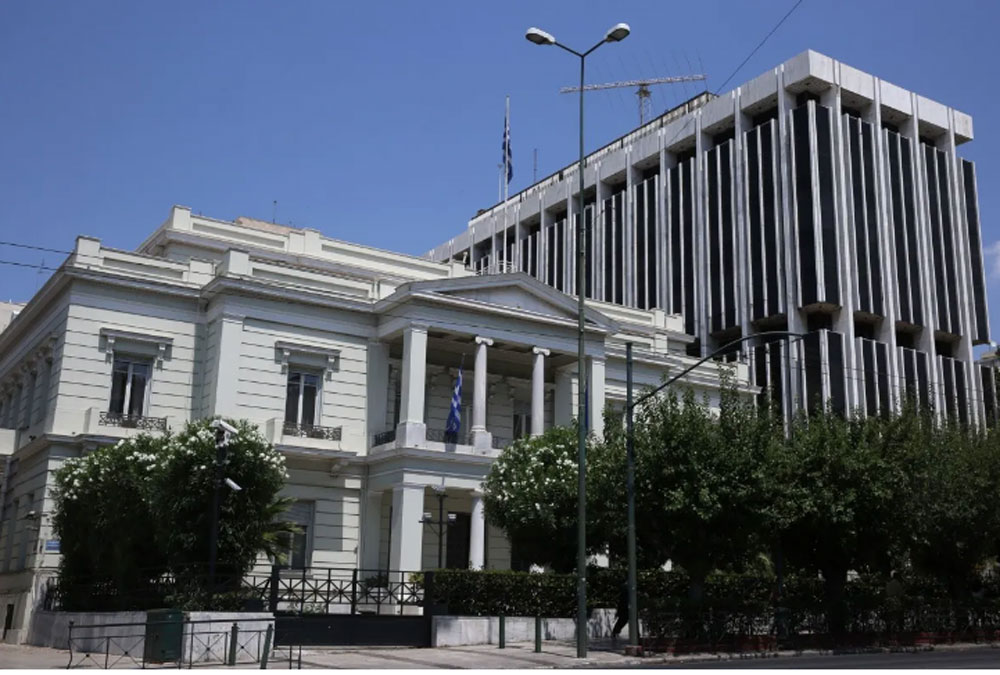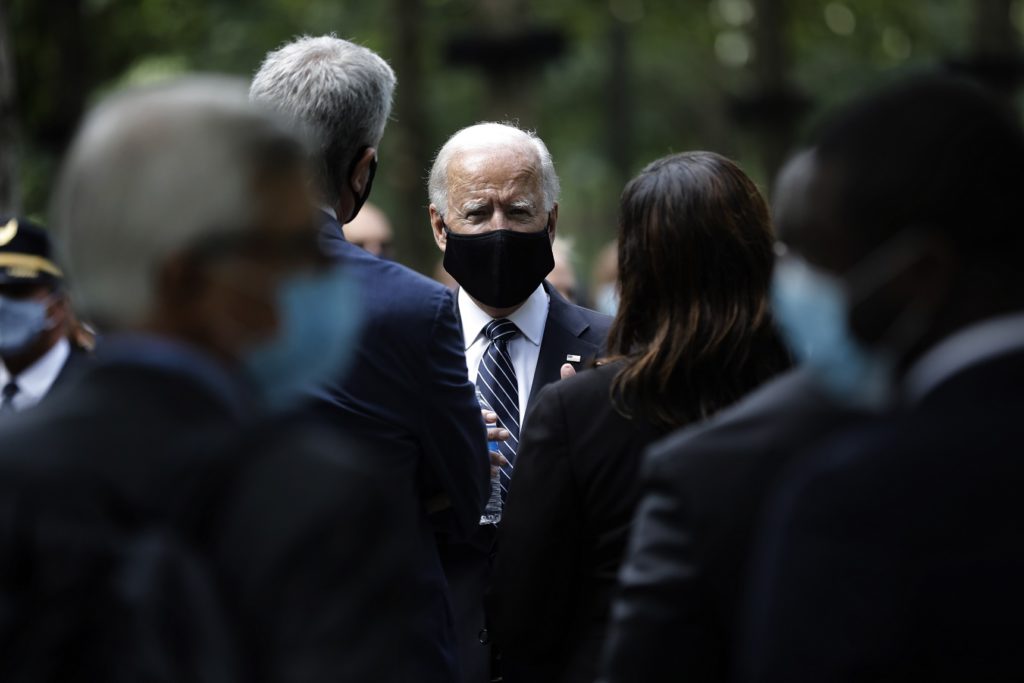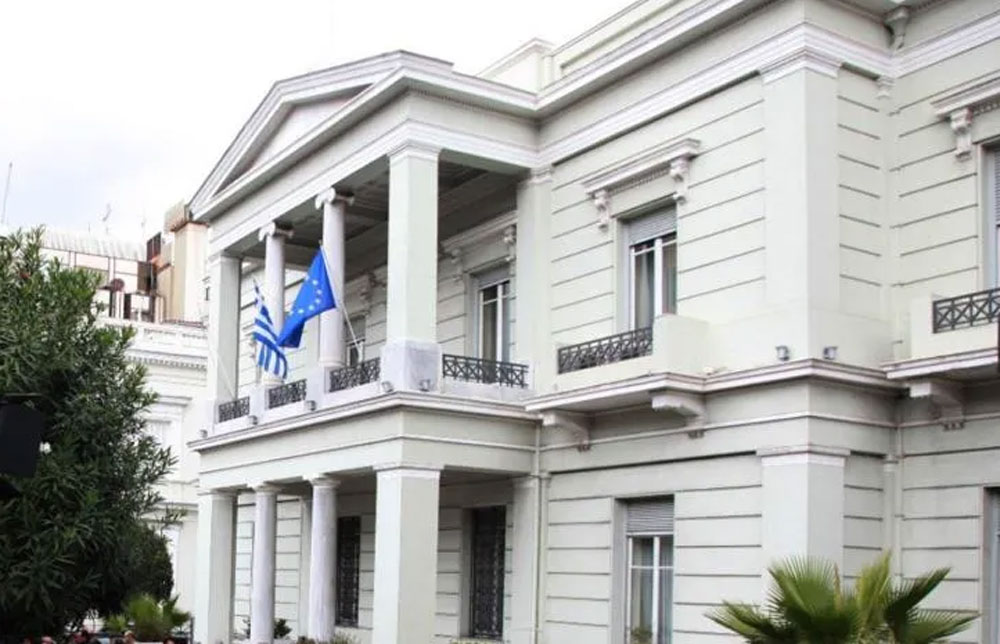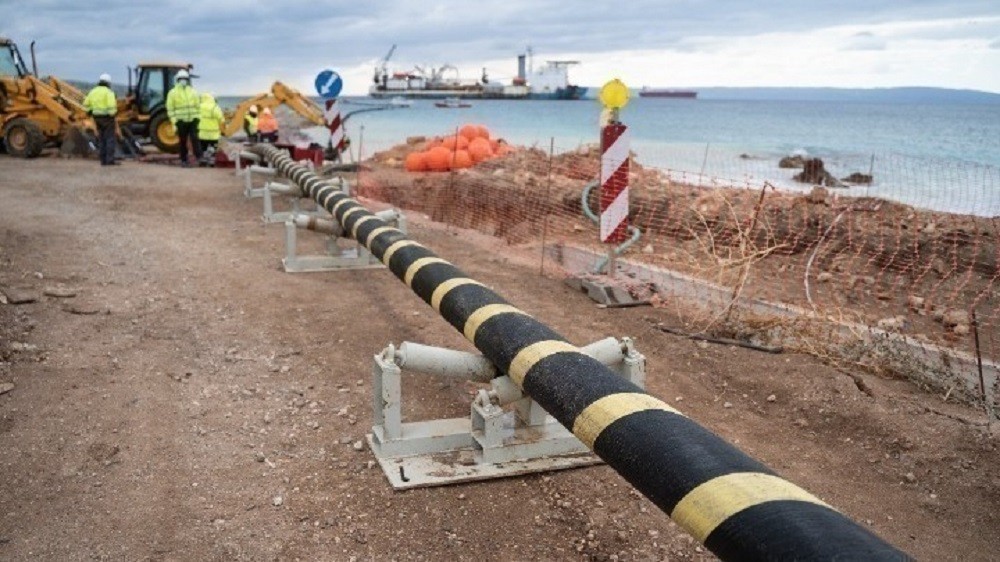
Biden Administration Is Testing its New Foreign Policy in Turkey: The acquisition of the S-400

Ο πρόεδρος Τζο Μπάιντεν στις εκδηλώσεις μνήμης για την 11η Σεπτεμβρίου. EPA, PETER FOLEY
The American Foreign Policy is always a tough issue to grasp, especially on whether a president can influence it more than the bureaucracy.
Professor of Columbia University Stephen Stepanovich has pointed out some criteria for the US foreign policy by referring to dualities that are embedded in it. How these dualities can affect the American foreign policy towards Turkey? Why is Ankara a simple case study for the wider Biden-Harris foreign policy?
One of the most significant dualities that have an immense impact on the US foreign policy is that the US promotes worldwide democracy and liberties but sometimes the American officials don’t punish brutal dictators that violate not only their country’s constitution but also, the international law itself. We have not to whisper it;
The former President of the US had special relations with Erdogan and that kind of relationship provided asylum to Turkey to complete the militarization of its foreign policy. Biden closed the back door of the White House, and now Turkey has to face the consequences of its own decisions.
- Secretary Pompeo, few weeks before he abandoned the Department of State, had already unleashed the feelings of Washington about Turkey. The US imposed the first package of CAATSA sanctions on Turkey, regarding its purchase of the Russian missile system S-400.
- The S-400 issue is only the tip of the iceberg of the issues that are poisoning the American-Turkish relations. Turkey is not only a critical country for the American interests in a wider region. It is a paradigm for Biden’s foreign policy.
Before all else, the US foreign policy appears to be in transition, because of the enormous challenge of Chinese rising. The words that describe better that kind of transition are ”malign influence” and ”corrupted businesses”. CAATSA and Magnitsky Act had been conducted to prevent Chinese and Russian actions.
The essence and practice of war have been changed because of the high-tech instruments that can affect the international order. The top priority of the US foreign policy is to prevent the ascend of great regional power in Asia (and in the wider Eurasia).
According to the US mindset, if any regional power achieves its aim to control its periphery, this could create a negative imbalance of power for the US interests. The most important prerequisite for the US to sustain as ”primus inter pares” in the new international order, is to keep the trilateral USA-NATO-EU, unified by reducing the Chinese and Russian influence.
Several arguments prove Turkey is a real challenge for Biden-Harris foreign policy. Foremost, NATO is passing through troublesome times. The cohesion of this critical vehicle of American security is at its lowest level. Turkey is stretching its arms in the Eastern Mediterranean, North Africa, Middle East, and the Caucasus.
Frankly, there are few subregions in which Turkey is absent in military terms. Libya, Syria, Northern Iraq, Nagorno Karabakh are countries that host Turkish troops and this militarization of Erdogan’s foreign policy poses a genuine threat to the vital interests of other important NATO member-states as are Greece and France. Egypt, Cyprus, and Israel are also countries that face the Turkish ”bullying” in different ways and these states are important allies of NATO. The upgrade of Russian-Turkish relations is also a factor that weakens the cohesion of NATO.
- Turkey is one of the most important powers in NATO and holds a critical location bridging West with East. The deterioration of US-Iranian relations in combination with the significant Russian-Turkish relations appears as complementary issues that threaten NATO. The Halkbank transactions are also poisoning the American-Turkish relations and resemble ”malign influence” and ”covert/corrupted actions”, this time, between Turkey and Iran.
The acquisition of the S-400 by Turkey means something more than a simple military transaction between the two states. It means a shift of Turkish foreign policy that no one could ignore in Washington, especially when Turkey, Russia, and Iran have important cooperation on Syria’s issue. But Turkey did more than that. In the previous year, Turkey not only weaponized thousands of refugees to trans pass the Greek borders but also transformed the important Monument of Hagia Sofia into a mosque. Human Rights, freedom of speech, and liberties have seen better days in Turkey.
The current US foreign policy under Blinken calls for understanding and unity among the US and its allies. Turkish domestic and foreign policy comprises an outstanding challenge to which the US should respond at a worldwide level. In the middle of December 2020, the US State Department announced sanctions against Turkey under CAATSA legislation (especially the paragraph which refers to Countering Russian Influence in Europe and Eurasia Act).
The new administration follows the same path to face Turkey’s disobedience, which drives Ankara far from the West. Tony Blinken and the US spokespersons of the Department of State insist Turkey should abandon the S-400 missile system. Turkish government faces serious issues because of the economic depression and the riots in Turkish universities. The majority of Turkish students call for freedom of speech.
On the other hand, the Turkish president and other officials of AKP, use more and more anti-American rhetoric, trying to throw away the blame-game for the inconvenient period that the Turkish government is passing through. The wider goal of Biden’s foreign policy is to send a global message (via Turkey) that if any state aspires to get US support, should fully comply with international law. Finally, the usage of democratic values as an instrument of US foreign policy.
- Of course, there will not be a regime change in every corner of the world and it is more than sure that the US will continue to have the channels open even with countries that don’t respect democratic values. But Turkey is a member-state of NATO.
The future of American-Turkish relations is still unclear, but for now, Turkey is between a rock and a hard place. Erdogan has to solve a tough dilemma. The Turkish presence in Nagorno Karabakh, Syria, and Libya depends on Russia, but the potential amelioration of the Turkish economy is connected with the West.
The US officials will continue to put the pressure on Erdogan, (further sanctioning on Turkey is still possible) knowing that time runs against Erdogan and Turkey finally will prefer the butter and not the guns in its ”guns-butter dilemma”. But how Erdogan will deal with American pressure on him remains a mystery.
PM Mitsotakis announces legislation to clarify responsibilities of state agencies at all levels

